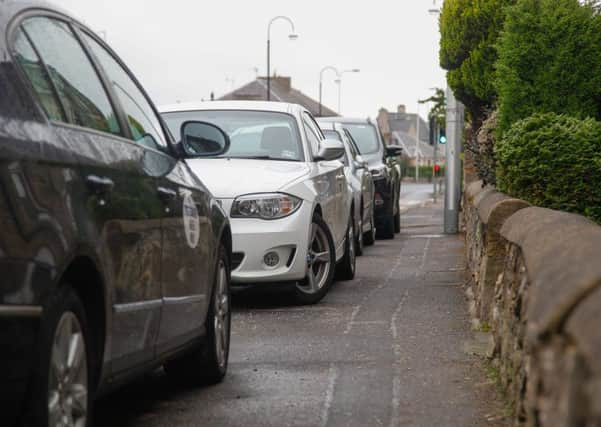Scottish councils to get new powers to run lifeline bus services


A new “partnership” regime between councils and bus firms is at the heart of changes unveiled by the Scottish Government as part of its Transport Bill.
Councils will be handed more powers to fill gaps in the network by teaming up with bus firms and even run services themselves where necessary.
Advertisement
Hide AdAdvertisement
Hide AdTransport Minister Humza Yousaf said ministers are determined to take action as bus use declines.
But he came under fire from opponents who say the changes will not allow councils to take buses back into public hands in a similar way to Edinburgh’s successful Lothian Buses. This can only happen in “restricted” cases, under the proposals, where the private sector does not want to run services.
Scotland’s bus industry has welcomed the plans but insists that public ownership will not tackle key issues such as growing operating costs and congestion.
Bus passenger numbers have slumped by more than 10 per cent over the past five years, although there were still 524 million journeys undertaken in 2016/17 alone.
Ministers are keen to get more Scots out of their cars and use buses to help cut greenhouse gas emissions. Mr Yousaf insisted yesterday that the new approach will address this.
“This government will not stand by as bus passenger numbers decline,” he said.
“Partnership is at the centre of our proposals, with a new model for local authorities to work with bus operators to revitalise services. We are also providing clearer options for authorities to pursue local franchising or provide services themselves in appropriate circumstances.
“By empowering local authorities and continuing to work in partnership with transport operators, we will continue to develop a cleaner, smarter public transport system with improved connectivity, accessibility and greater economic benefits for all of Scotland.”
Advertisement
Hide AdAdvertisement
Hide AdOpposition parties described the Bill as a “missed opportunity”.
Labour has been campaigning for buses to be taken into public hands in recent years.
But party Transport spokesman Colin Smyth said this can only happen in “very restricted circumstances” under the Bill’s provisions. “This would leave local councils picking up the pieces, running the very few loss-making routes whilst transport tycoons line their pockets on the rest of the bus network,” he said.
Green MSP John Finnie welcomed the fact that councils could step in to provide bus routes in areas where communities have been “left behind” by private operators.
But he added: “It is disappointing that it does not allow for the re-regulation of buses so that local authorities can choose to bring all bus services under public ownership.”
Lib Dem MSP Mike Rumbles said: “The problem with these plans is that they will leave councils under more financial strain as companies are able to wash their hands of unprofitable routes.”
But the new approach has won the backing of the bus industry and passenger groups.
George Mair, director of the Confederation for Passenger Transport (CPT), which represents bus firms, hit out at the “failure” at the local level to prioritise bus users over the private car.
Advertisement
Hide AdAdvertisement
Hide AdHe added: “Putting a council logo on the side of a bus doesn’t resolve increasing operating costs, tackle congestion, or roll back the impact of reduced public sector investment in the bus sector in recent years. It would only succeed in transferring costs and revenue risk without benefitting bus passengers.”
Gavin Booth, director for Bus Users Scotland, said the emphasis on partnership will “benefit passengers”.
He added: “From our complaints and monitoring work we know that reliability and punctuality are the two aspects of bus travel in Scotland that most concern bus passengers.
“Practical partnerships involving bus operators and local authorities could address these issues by tackling congestion, which in Scotland’s urban areas is the main contributory factor to bus service delays.”